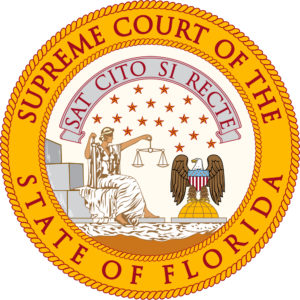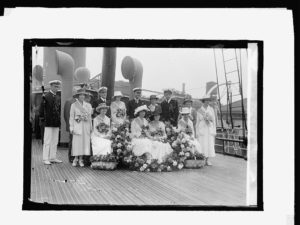Supreme Court Again Amends Preservation Requirements of Rehearing Rule
The Florida Supreme Court has once again amended the language of Florida Rule of Civil Procedure 1.530 and Florida Family Law Rules of Procedure 12.530 — this time, to state that “to preserve for appeal a challenge to the failure of the trial court to make required findings of fact, a party must raise that issue in a motion for rehearing under this rule.” See In re Amendments to Florida Rule of Civil Procedure 1.530 and Florida Family Law Rule of Procedure 12.630, No. SC2022-0756 (April 27, 2023) [.pdf] (bolding indicates new language).
This language regarding “required findings of fact” replaces language stating that the motion is required “To preserve for appeal a challenge to the sufficiency of a trial court’s findings in the final judgment.” (emphasis added). The Court explains that “This change makes both rules applicable to all orders, not just final judgments, and makes clear that the rules apply only when a judge is required to make specific findings of fact and not when a party seeks to make other challenges to a trial court’s order.” Id. at 2.
The statement that it makes the rules “applicable to all orders” is somewhat unfortunate wording, in that it could be read to infer that a 1.530 motion is requried after every order if findings of fact are at issue. But a Rule 1.530 or 12.530 motion is still a motion directed only to jury verdicts and judgments, according to the unchanged portion of the rule. This means that if there is an interlocutory order that is missing findings of fact, even if you raise the issue in an interlocutory motion for reconsideration, that may not be sufficient to preserve the issue for appeal. Rather, the rule should be read to mean that a post-verdict or post-judgment motion for Rehearing must address insufficient findings of fact, whether those findings are found in the final judgment itself or in an interlocutlory order, in order to preserve the issue for appeal.
This unfortunate wording also opens the door for possible waiver of the right to appeal altogether. What if the order that does not have a proper finding of fact is non-final but still directly appealable pursuant to Rule 9.130? This change and the Supreme Court’s implementing “all orders” language could be read to state that you must file a motion for rehearing in order to preserve a challenge to the findings in that non-final order. Yet, a Rule 1.530/12.530 only acts to toll the time for appeal if it is “authorized and timely.” And there is a plethora of case law that states that a motion for reconsideration directed at a non-final order does not toll the time for appeal. For example, as the Fifth District has explained:
A motion for reconsideration does not toll the time to file an appeal from a non-final order. See Caufield v. Cantele, 837 So.2d 371, 376, n. 3 (Fla. 2002). The reason, of course, is that motions addressed to non-final orders are not “authorized†within the meaning of Rule 9.020(h), Florida Rules of Appellate Procedure, and thus do not postpone rendition.
Agere Sys. Inc. v. All Am. Crating, Inc., 931 So. 2d 244, 244 (Fla. 5th DCA 2006).
Given the mixed messages here, I recommend two courses of action:
(1) Make sure any post-judgment or post-verdict motion for rehearing addresses all required factual findings you may want to challenge on appeal, not just those missing from a final order or judgment.
(2) If the order you wish to appeal is an appealable non-final order — which is fairly common in post-dissolution family court cases, in particular — you should both file a motion for rehearing within 15 days of the entry of the to-be-challenged order, and file a timely notice of appeal within 30 days of entry of the order. Do not assume that the motion for rehearing will toll the time for appeal. You can then ask the appellate court to relinquish jurisdiction to the trial court to rule on the rehearing motion. This will ensure that you don’t lose jurisdiction for the appeal while awaiting the trial court’s reconsideration decision.
By focusing on the failure to make findings rather than the sufficiency of the findings, a fair reading of the change in language is that it actually narrows the rehearing requirements to situations where a court has made no findings at all. Still, with preservation at stake, until the contours of the new rule are expounded by appellate court decisions, it is best practice to bring any issues with the sufficiency of findings in a ruling to the trial court’s attention on reconsideration or rehearing. And because those motions need to be brought quickly, we recommend contacting appellate counsel as soon as you know you have an order you may want to appeal. To contact us, just call 813-778-5161 or use this form to request a consultation.


